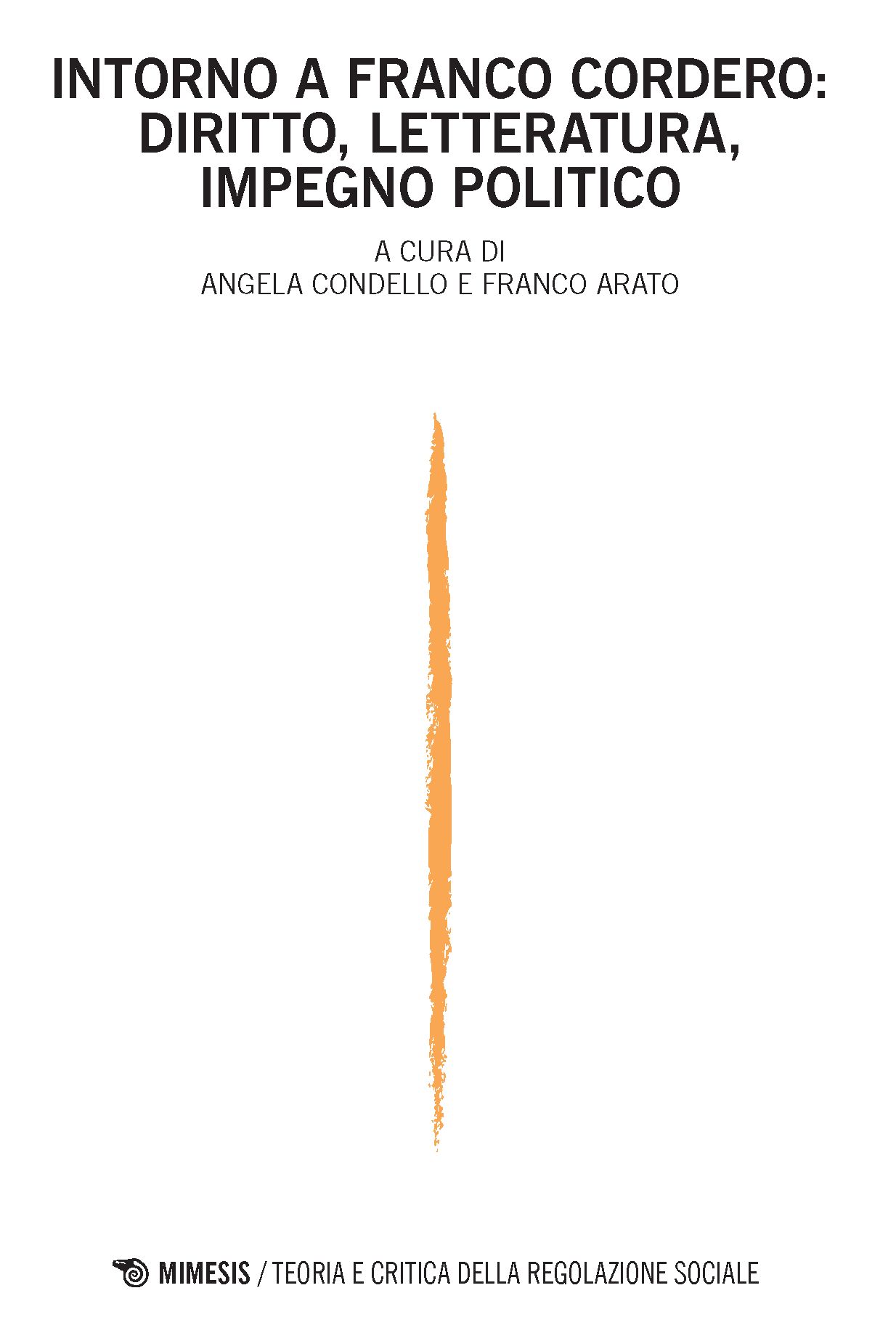Abstract
Franco Cordero’s narrative arose at the end of the sixties from a personal controversy: early in his academic careeer, the jurist got on a collision course with the institution of Catholic Church, whose teaching he had embraced when he was very young. His debut as a novelist (Genus, 1969) sounds as a sharp allegory of power politics in Post-war Italy; this prelude is followed by a rich harvest of books: for instance, Opus (1972), on a middle-aged Jesuit who is losing his faith; Pavana (1973), a multi-voiced novel on moral and political corruption in a small town. The author’s masterpiece is perhaps L’opera (1975), the recollection of one day in February 1945, when Cordero’s hometown, Cuneo, is approaching the end of Fascist war and the protagonist experiences the beginning of adult life. Cordero’s style fluctuates between a Baroque flair for linguistic inventiveness and a precise, analytical evocation of masked hypocrisy. As a gloomy and bold scourge of modern society, Cordero is a unique voice in Italian literature of the late twentieth century.

